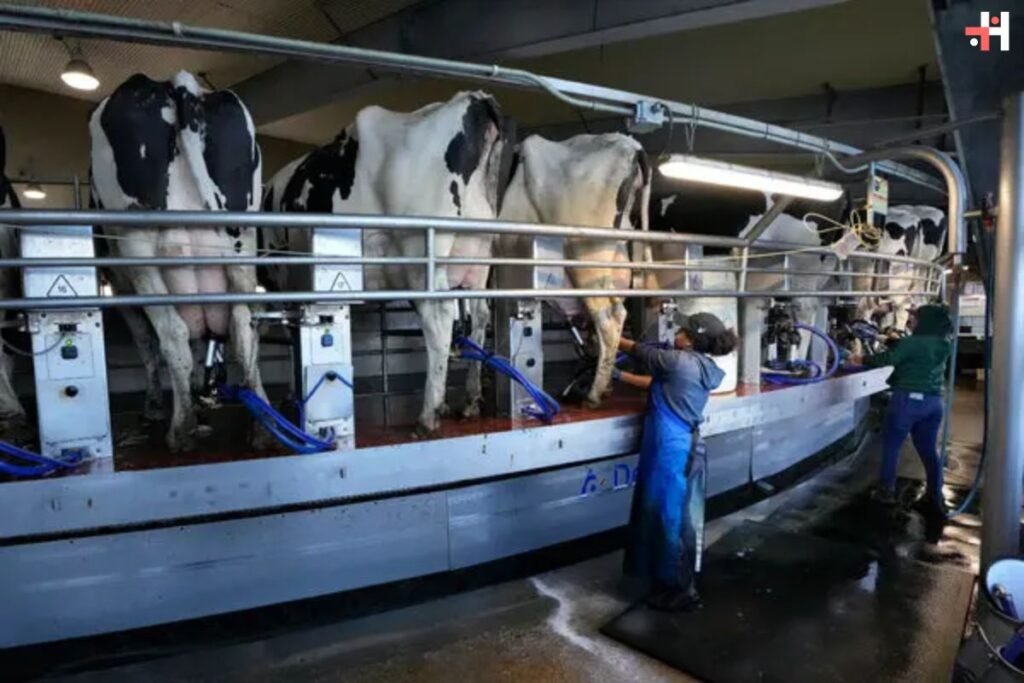[Source-The New York Times]
Federal regulators have discovered Genetic Traces of bird flu virus in roughly 20 percent of retail milk samples tested in a nationally representative study, the Food and Drug Administration said in an online update on Thursday.
Nationwide Testing Unveils Prevalence
Samples from parts of the country known to have dairy herds infected with the virus were more likely to test positive, the agency said. This discovery raises questions about the extent of the outbreak and the effectiveness of current control measures.
“It suggests that there is a whole lot of this virus out there,” said Richard Webby, a virologist and influenza expert at St. Jude Children’s Research Hospital. While the milk does not pose a direct threat to consumers, the widespread presence of the virus indicates a larger problem within the dairy industry.
Potential Risks and Uncertainties
Dr. Webby emphasized the need for a better understanding of the outbreak’s scope to implement effective control measures. Additionally, the findings prompt concerns about the virus’s undetected spread and its potential impact on public health.
Until recently, testing focused primarily on cows with visible symptoms, and only a small fraction of people have been tested for exposure to the virus. The lack of comprehensive testing limits the ability to gauge the true extent of the outbreak and devise appropriate responses.
Genetic traces of bird flu virus found in 1 in 5 samples of pasteurized milk
Implications for Food Safety
Federal officials have assured that the pasteurization process used in milk production should deactivate the virus, rendering the milk safe for consumption. While genetic traces of bird flu virus may remain, they are incapable of causing infection.
Dr. Samuel Alcaine, a microbiologist at Cornell University, explained that the presence of genetic material is not uncommon after pasteurization and does not indicate a safety risk.
Also Read: First-Ever Bird Flu Outbreak Detected in Cows Sparks Concern: Milk Safety Questions Arise
Ongoing Research and Monitoring
While initial testing has not detected live virus in retail milk, ongoing efforts are underway to confirm these findings and assess any potential risks. Researchers are examining milk samples from various points in the supply chain to better understand the virus’s behavior and potential transmission routes.
Dr. Jeanne Marrazzo, director of the National Institute of Allergy and Infectious Diseases, emphasized the importance of comprehensive testing and research efforts to accurately assess the situation.
The genetic traces of bird flu virus fragments in a significant portion of milk samples underscores the need for continued vigilance and research in safeguarding food safety. While the presence of genetic material does not pose an immediate threat, it highlights the importance of thorough testing and monitoring to protect public health.









